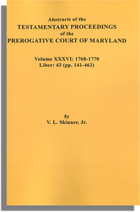by the late Carolyn L. Barkley (We published an earlier version of this article, by the wonderful librarian and genealogist Carolyn Barkley in 2013. While one or two of the resources Carolyn cites are a bit long in the tooth, most of her tips are timeless.) If you are intending to travel to the Family[…]Read more



